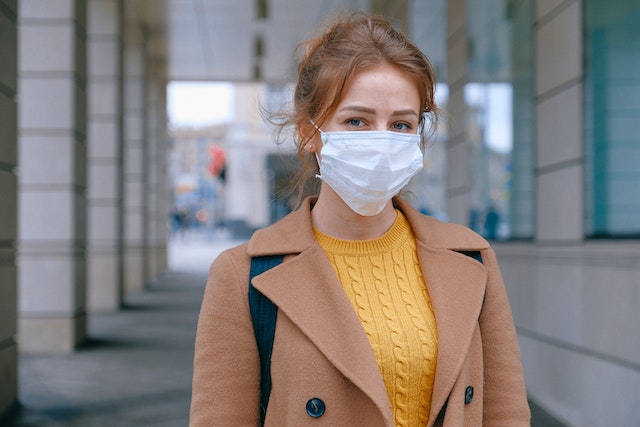Introduction: As wildfire season in Canada approaches, it is crucial for individuals to understand the importance of wearing a respirator to protect themselves from the hazardous effects of wildfire smoke. In this article, we will highlight the significance of respiratory protection during wildfire events and provide essential information on why wearing a respirator is crucial for your health and well-being.
Understanding Wildfire Smoke: Wildfire smoke contains a mixture of gases, particulate matter, and toxic compounds that can have severe health implications. Fine particles, known as PM2.5, are especially concerning as they can penetrate deep into the lungs and enter the bloodstream, leading to respiratory issues, cardiovascular problems, and other adverse health effects. Protecting yourself from these harmful particles is vital during wildfire season.
The Role of Respirators: Respirators, specifically N95 or P100 respirators, play a critical role in filtering out airborne particles and providing a high level of respiratory protection. These respirators are designed to create a tight seal against the face, preventing the entry of smoke particles and reducing exposure to harmful pollutants.
Benefits of Wearing a Respirator:
- Filtering Efficiency: N95 respirators can filter out at least 95% of airborne particles, while P100 respirators can capture up to 99.97% of particles. Wearing a properly fitted respirator ensures that the majority of fine particles, including PM2.5, are effectively filtered out, reducing your inhalation of harmful pollutants.
- Protection for Vulnerable Individuals: Respirators are especially crucial for individuals who are more susceptible to the health impacts of wildfire smoke, such as children, the elderly, and those with pre-existing respiratory or cardiovascular conditions. Wearing a respirator can significantly reduce their exposure and minimize potential health risks.
- Peace of Mind: Wearing a respirator provides a sense of security and peace of mind during wildfire events. Knowing that you have taken proactive steps to protect your respiratory health can alleviate anxiety and allow you to focus on necessary tasks or evacuation procedures.
Proper Usage and Fit: To ensure the effectiveness of respirators, it is important to follow these guidelines:
- Select the Right Respirator: Choose a certified N95 or P100 respirator that has been tested and approved by reputable organizations, such as the National Institute for Occupational Safety and Health (NIOSH).
- Proper Fit: Follow the manufacturer’s instructions to achieve a proper fit. The respirator should cover your nose, mouth, and chin, creating a secure seal with no gaps or leaks.
- Seal Check: Perform a seal check each time you wear the respirator. Cover the mask with your hands and exhale gently to ensure there is no air leakage around the edges. Adjust the respirator if necessary to achieve a better seal.
- Duration of Use: Wear the respirator consistently during periods of dense smoke. Keep in mind that respirators have a limited lifespan and should be replaced when breathing becomes difficult or if the mask becomes damaged or soiled.
Conclusion: During wildfire season in Canada, wearing a respirator, particularly an N95 or P100 respirator, is crucial for protecting yourself from the harmful effects of wildfire smoke. These respirators effectively filter out fine particles, providing a high level of respiratory protection. By wearing a properly fitted respirator, you can significantly reduce your exposure to hazardous pollutants and safeguard your respiratory health. Remember to choose the right respirator, ensure a proper fit, and follow manufacturer guidelines for usage. Prioritize your well-being and join the effort to mask up, Canada, for a safer and healthier wildfire season.




